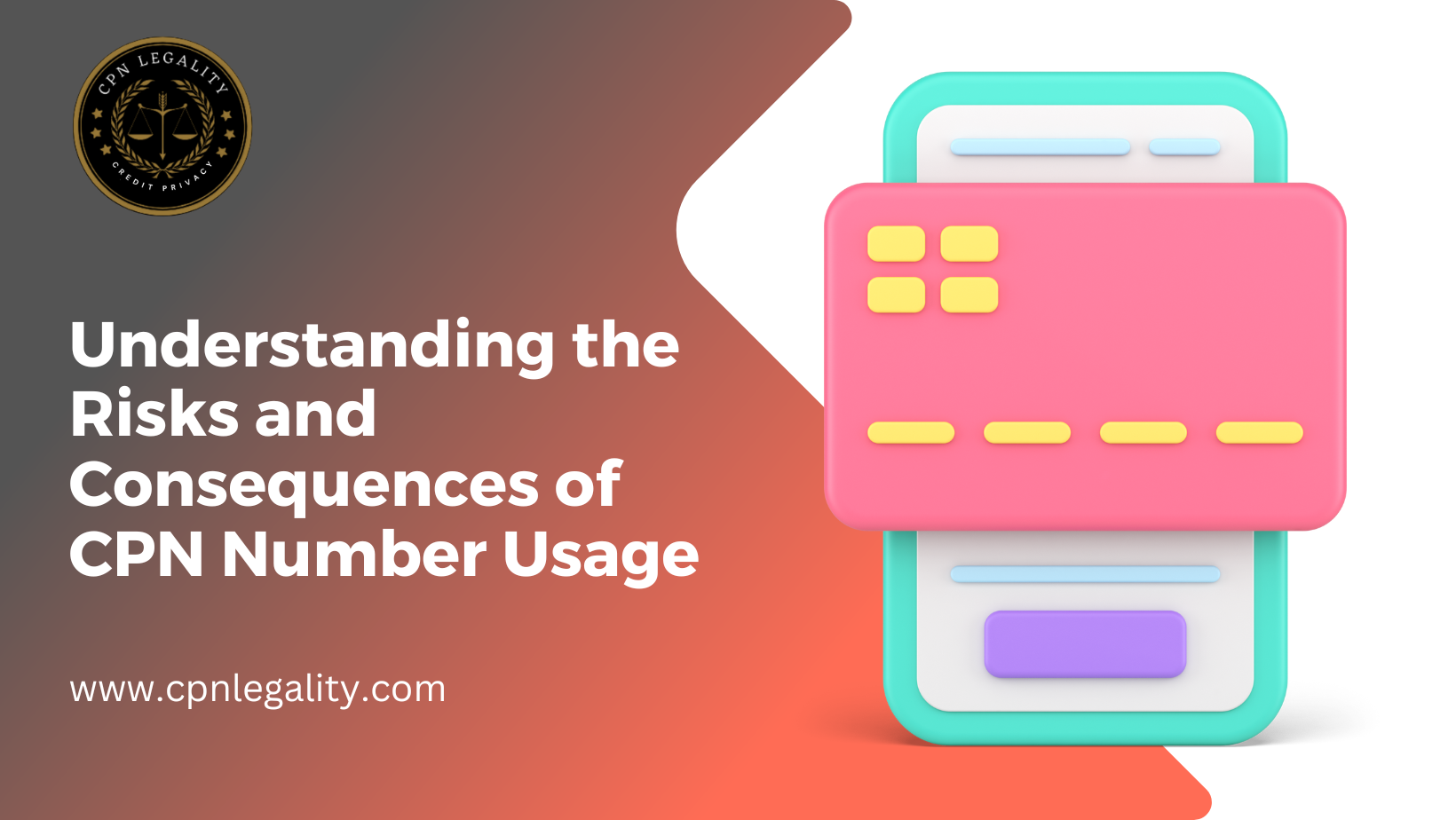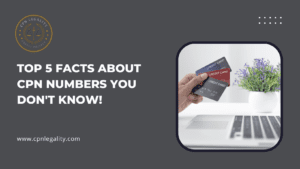
3-Step Formula to Financial Success With CPN Numbers
Achieve financial success with our 3-Step Formula leveraging CPN Numbers for a secure and prosperous future.

In a world where financial security is paramount, individuals often seek alternative means to improve their creditworthiness. One such method gaining attention is the use of CPN numbers or Credit Profile Numbers.
While CPNs may sound like a tempting solution, it’s essential to delve into the depths of this topic to understand the potential risks and consequences associated with them.
CPN numbers, also known as Credit Profile Numbers or Credit Privacy Numbers, are nine-digit identifiers that some individuals use as an alternative to their Social Security Number (SSN) when applying for credit. These numbers are primarily marketed as a way to protect one’s personal information and establish a new credit identity.
Using a CPN number does not guarantee financial success. In fact, it can have adverse financial consequences, such as:
To minimize risks, it’s crucial to use a CPN number responsibly, only for legitimate and legal purposes. Avoid any activities that could be considered fraudulent.
There are legitimate alternatives to CPN numbers, such as credit counseling and debt management programs, which can help individuals improve their financial situation without resorting to CPN usage.
Understanding the difference between legitimate credit repair methods and CPN numbers is crucial for those looking to improve their credit standing.
Credit bureaus play a significant role in the financial world. It’s essential to understand how CPN numbers can impact your relationship with these institutions.
Using a CPN number when applying for a mortgage can have unique implications. It’s essential to be aware of how it can affect your eligibility and terms.
CPN numbers, also known as Credit Profile Numbers or Credit Privacy Numbers, are nine-digit identifiers that some individuals use as an alternative to their Social Security Number (SSN) when applying for credit.
While CPNs may appear as a tempting option, there are significant risks associated with their usage.
Perhaps the most critical risk of using CPN numbers is the potential for legal trouble. Here’s an in-depth look at the legal consequences:
If you employ a CPN for fraudulent purposes, you can face criminal charges. These charges may include identity theft, fraud, and related offenses, depending on the nature of your CPN usage.
In addition to potential criminal charges, you may be subjected to substantial fines imposed by the legal system. These fines can be financially burdensome and add to the overall consequences of CPN misuse.
In severe cases of CPN misuse, imprisonment is a possibility. Depending on the extent of fraudulent activities associated with your CPN use, you could face imprisonment, leading to severe personal and financial consequences.
Understanding these legal risks emphasizes the importance of using CPNs only for their intended purposes and within the bounds of the law.
It’s vital to understand that using a CPN does not guarantee a fresh start or an improved credit score. Here’s a more detailed explanation:
In practice, using a CPN can have a detrimental impact on your creditworthiness. Many creditors and financial institutions are aware of CPNs and may view their usage with suspicion. If detected, CPN usage can lead to negative marks on your credit report.
Creditors may question your credibility and trustworthiness when they identify CPN usage. This skepticism can result in higher interest rates, reduced credit limits, or outright denials for credit applications.
The damage to your credit caused by CPN usage can have long-lasting consequences, making it difficult to secure loans, credit cards, or favorable interest rates. These challenges can persist for an extended period, affecting your overall financial stability.
Using a CPN can introduce complications in various everyday financial transactions. Here’s a closer look:
When attempting to open a bank account, financial institutions may closely scrutinize your CPN usage. This scrutiny can result in delays, additional documentation requirements, or even denials, making it more challenging to manage your finances.
Securing a mortgage is a significant financial milestone for many individuals. However, using a CPN can complicate the mortgage application process, potentially leading to higher interest rates or rejection by lenders.
Beyond banking and mortgages, using a CPN can pose obstacles when applying for essential services such as utilities, insurance, and rental agreements. It may require extra effort to prove your creditworthiness, leading to inconvenience and added stress.
Relying on a CPN may result in missing out on the opportunity to build a genuine credit history. Here’s a more detailed explanation:
A legitimate credit history is crucial for financial stability and future opportunities. It serves as a record of your financial responsibility and reliability, affecting your ability to secure loans, rent housing, and access various financial services.
By using a CPN instead of your Social Security Number (SSN) for financial transactions, you limit your access to legitimate credit opportunities. This can hinder your ability to establish a strong credit profile and achieve long-term financial goals.
The consequences of utilizing CPN numbers are substantial and wide-ranging. Understanding the legal risks, potential damage to your credit, difficulties in financial transactions, and the missed opportunity to build genuine credit underscores the importance of approaching CPN usage with caution and within the boundaries of the law.
Prioritizing legitimate means of managing and improving your credit is essential for long-term financial stability and success.
While the idea of using CPN numbers to enhance financial privacy and creditworthiness may seem appealing, it comes with substantial risks and potential consequences.
Engaging in CPN-related activities without a thorough understanding of the legal and financial implications can lead to severe setbacks. It’s essential to prioritize legitimate means of managing and improving your credit to secure a stable financial future.
Related Article: Future of CPN Use: Navigating the Path Forward
CPN numbers themselves are not illegal, but their misuse can lead to legal consequences.
No, CPN numbers do not guarantee improved credit scores, and their misuse can harm your credit.
Be cautious when sharing personal information, and only consider CPN services from reputable sources.
CPN numbers can be used for specific purposes like business transactions, but using them to deceive creditors is illegal.
The best way to improve your credit is by managing existing accounts responsibly, paying bills on time, and reducing debt. Consider seeking advice from a financial advisor for personalized guidance.

Achieve financial success with our 3-Step Formula leveraging CPN Numbers for a secure and prosperous future.

Uncover hidden truths with the top 5 facts about CPN numbers that you never knew in this revealing exploration.

Discover the ins and outs of buying CPNs – Are they right for you? Explore the world of CPNs and their implications.

Comparing CPN Numbers and Secured Credit Cards – Uncover the best credit-building options and make informed financial choices.
Call us now!
©2023 by CPN Legality. Managed by Abaani Tech